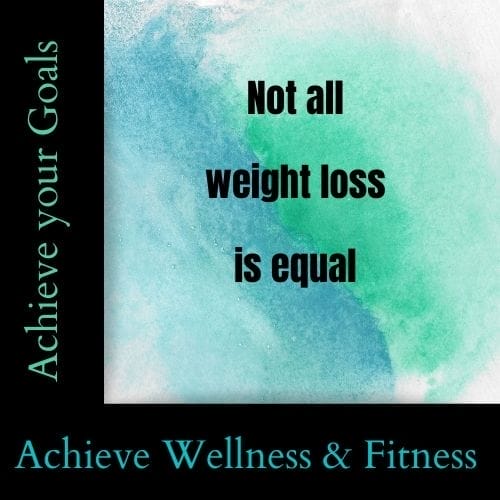
*This article first appeared in the April 2024 issue of Panorama Community Magazine.
Many people mistakenly use the scale as their sole determinant of progress on a weight loss or health improvement journey. While overall weight can be an important data point, it does not tell the whole story regarding your health. With the rise of medication use for weight loss, I believe this is an important topic to address given the potential negative outcomes of simply focusing on overall weight loss.
First, let’s discuss scale-related goals. Many people have in mind a number on the scale where they feel they would be “happiest.” One potential problem associated with such a goal is destination happiness. In the event a person reaches this goal, they may potentially find that they are no happier with themselves at that point compared to when they were 5-10 pounds heavier. Furthermore, it also matters what approach the person took to achieve their goal weight. If it was through unsustainable means, the “happiness” will be short-lived when they find they are unhappy in their day-to-day life trying to maintain their weight loss.
Digging deeper into this issue, it is worth mentioning that your worth or value as a person is not tied to a number on the scale. If you are connecting your weight with your happiness, it is a sign that you may need to work with a therapeutic professional because there is a chance that no matter what your weight is, you may never be happy with yourself. Although I cannot ignore that people may need to lose weight to improve their health, I do encourage folks to find other measures of progress along the way such as increased energy levels, clothes fitting better, moving better in their everyday life, improved mood, etc. as better ways of measuring progress while awaiting a response from the scale.
When people pursue pure weight loss, whether that may be through a calorie deficit, medication-assistance, or excessive exercise, it may be happening at the expense of muscle mass loss. During the weight loss process, muscle mass preservation should be a goal given its impact on our overall health and long-term vitality. This is not about one being “bulky” and having “bodybuilder muscles,” this is about being able to live independently as long as possible. To be short and to the point, look around the nursing home…the vast majority are individuals who have limited muscle mass and can no longer perform simple activities of daily living due to loss of muscle mass and strength.
There is a condition called sarcopenia, often associated with growing older, but can happen even in younger people where an individual loses muscle mass and strength. This may happen as a result of decreased physical activity, or inadequate nutrition. When people choose the paths I mentioned up above–calorie deficit (particularly a severe one), medication-assistance (particularly for those who don’t have significant weight to lose), excessive exercise–they are putting themselves at risk for excessive muscle mass loss, not simply just weight loss. The resulting circumstances may mean that although the person has lost weight, they might actually now have more body fat mass. In addition, they might’ve also lowered their resting basal metabolic rate which now means they are burning less calories at rest. These folks can be informally referred to as “skinny fat.”
On the contrary, an approach to weight loss I do recommend is working a balanced fitness program that includes strength training and cardio, paired with a nutritional approach that supports muscle mass gain or preservation while focusing on body fat loss. Not to mention, this approach has lower long-term health risks (if any risk at all) compared to those who try to live in a severe caloric deficit, rely on medication for weight loss, or exercise excessively.
People often think they want weight loss, when really they want fat loss, and the two are not created equal. What people often then say is “a pound of muscle weighs more than a pound of fat,” and that is not true. A pound is a pound is a pound. A pound of feathers and a pound of lead weigh exactly the same–one pound; however, they look very different. Similarly, a pound of body fat looks very different from a pound of muscle.
One final point I’d like you to consider, and many of my clients are starting to recognize this, is that your goal body likely weighs more than you realize. With a focus on building muscle mass and reducing body fat (not necessarily overall weight in many circumstances), they are feeling better than they ever have, even at ages 50+.
To summarize the main points of this article: 1) not all weight loss is the same and a strict focus on overall weight might actually cost you your overall health, 2) if you are relying on a number on the scale to make you happy, it is very likely that you will always be unhappy regardless of the number, and 3) the not-so-secret sauce to accomplishing your health and body fat loss goals is building and maintaining muscle mass.
If you are looking for help with find that nutritional or exercise balance or seeking a plan for post-medication assisted weight loss therapy, we are here to help.
Schedule your free consultation by clicking the button below.
